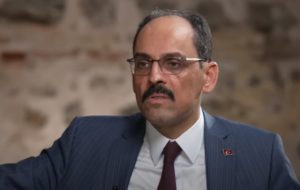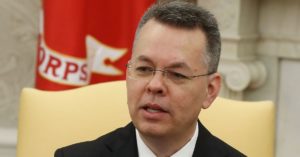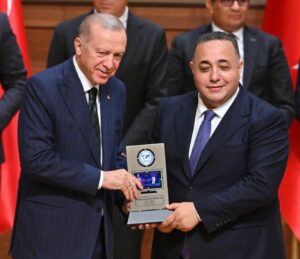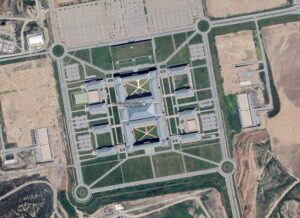Abdulah Bozkurt/Stockholm
The Turkish intelligence agency has developed a specialized program to scrutinize visiting US and British nationals amid suspicions that some may be operating as spies or contractors with intentions to destabilize President Recep Tayyip Erdogan’s government.
The deep-seated paranoia within Erdogan’s Islamist government stems from a pervasive belief among Turkish leadership that the US and its close ally, the UK, aim to oust Erdogan, who has governed the country with an iron fist for the past two decades.
As a result Turkish institutions, particularly the two main intelligence agencies—the National Intelligence Organization (Milli İstihbarat Teşkilatı, MIT) and the Security Directorate General’s Intelligence Unit (Emniyet Genel Müdürlüğü İstihbarat Başkanlığı) —which have been instrumental in sustaining Erdogan’s rule, were directed to focus on US and British nationals visiting or residing in the country.
As part of this directive, MIT developed an algorithm that integrates multiple data sets into a specialized program designed to flag American and British nationals suspected of being spies or assets with hidden agendas. The algorithm analyzes various indicators, including certain professions, frequented locations, associates, keywords used in messages, internet traffic, behavior patterns and more, to create profiles warranting closer scrutiny.
MIT is currently led by Erdogan’s former national security advisor, Ibrahim Kalin, a pro-Iran academic who has been working with Erdogan for nearly two decades. Under Kalin’s leadership, MIT has assisted Erdogan in conducting false flag operations, influence and psychological impact campaigns, extrajudicial murders and kidnappings, and fabricating evidence to manipulate judicial cases with the aim of cracking down on opponents, dissidents and critics of the government.
According to confidential information obtained by Nordic Monitor, MIT focused its screening on specific professions believed to be used by US and British spy agencies when deploying their assets to Turkey. These professions include journalists, researchers, academics, clergy, NGO workers and employees of multinational firms who are suspected of operating under deep cover.
The information gathered through this surveillance program has often been manipulated, exaggerated and repackaged to achieve specific goals set by the Erdogan government. This includes engaging in hostage diplomacy, mobilizing its core religious, nationalist and conservative base with false narratives, and preventing defection among supporters who might otherwise be disillusioned by pervasive corruption and everyday economic issues.
Deportation orders, denial of residence permit renewals, revocation of accreditation and, in extreme cases, prosecution and imprisonment of mainly US and to a lesser extent British nationals were primarily based on secret dossiers prepared by MIT. These actions targeted individuals needing clearance or residency to work in their professions, often exploiting the criminal justice system or administrative regulations to achieve these ends.

In the last decade numerous US and Western journalists have faced deportation, entry denial or detention in Turkey, all based on MIT’s classified documents suggesting they threatened Turkey’s national security and territorial integrity. In almost all cases MIT’s key role was concealed from public view, and attempts to obtain original intelligence documents in lawsuits were obstructed by claims of state secrets.
Perhaps the most well-known case is the imprisonment of American pastor Andrew Craig Brunson, who was accused of supporting the government-critical Gülen movement and having links to the outlawed Kurdistan Workers’ Party (PKK). Convicted on terrorism charges, Brunson was released from prison and allowed to return to the US in October 2018 following intense diplomatic pressure from the US administration.

Brunson had lived in Turkey with his wife and three children since 1993, serving most of that time as pastor of the small İzmir Resurrection Church, which had a congregation of about two dozen people. The trial was widely regarded as a charade, with ludicrous charges. The mastermind behind Brunson’s prosecution was, in fact, MIT, which had flagged him as a deep-cover American spy working against Turkish interests.
The denial of Brunson’s residency renewal in October 2016 was based on a secret intelligence note, leading to his classification with a G-87 code, indicating he posed a national security risk. In December 2016, he was arrested based on secret witness testimony, which is believed to have been orchestrated by MIT as well.
Utilizing its intelligence assets embedded in the Turkish media, MIT shaped the discourse surrounding Brunson’s trial, promoting a narrative that portrayed him as a spy to validate his arrest. Some MIT operatives went so far as to suggest that Brunson was in Turkey to conduct operations against China and Iran.
Abdurrahman Şimşek, a MIT asset operating under the guise of journalism, alleged that Brunson clandestinely met with Iranians and Chinese visitors who entered Turkey on the pretext of tourism, purportedly under orders to destabilize China and Iran. Şimşek is associated with the Turkuvaz media group, which is owned by President Erdogan’s family and controls the Sabah daily, the A-Haber network and several other publications.

Zafer Şahin, another MIT asset within the government-controlled media, has also propagated conspiracy theories, alleging that Brunson was a high-profile spy. Şahin recently cast doubt on US and British visitors in Istanbul during the March 2024 local elections, suggesting that many of them should be viewed with suspicion.
In a propaganda piece published two days before this year’s local elections, Şahin claimed that the increase in the number of US and British visitors to Istanbul in January and February was unusually high. He asserted a similar trend was observed in 2023 before parliamentary and presidential elections. Despite actual data showing a different narrative, Şahin, acting as a MIT asset, aimed to bolster the false narrative promoted by the intelligence agency. His efforts were geared towards instilling anti-American and anti-Western sentiment among the Turkish public.
The official statistics maintained by the Istanbul branch of the Ministry of Culture and Tourism reveal that in January 2023, Russians and Iranians were the top visitors to Istanbul, with 182,018 (13.71 percent of the total) and 63,304 (5.32 percent) visitors, respectively. Americans accounted for 40,924 visitors (3.44 percent) during the same month.
In February Russians and Iranians again led with a combined total of 208,882 visitors to Istanbul, while US and British visitors totaled 72,783, consistent with the previous month’s pattern. A similar trend was observed in January and February 2024, with a slight overall increase across all nationalities.
There is no indication in the data that shows a significant surge in the number of American and British visitors to Istanbul. By selectively focusing on these two categories and disregarding the much larger blocs of Russian and Iranian visitors, Şahin appears to be fulfilling the agenda set by his handlers within the intelligence agency.

The heightened scrutiny of US and British nationals by the intelligence agency is reflected in the increased number of removal and residence denial actions carried out by the Turkish Migration Management Authority, which operates under the Interior Ministry. Numerous non-Turkish members of the Protestant community in Turkey have faced deportation, had their residence permits revoked or not renewed, and in some cases, were denied entry visas. These actions were reportedly based on secret MIT reports that classified them as national security threats.
As a result of MIT’s clandestine surveillance and monitoring program, individuals were marked by the migration agency under codes such as N-82, indicating they posed a threat to Turkey’s national security; G-87, signifying a general security threat typically applied to foreign fighters, terrorists and criminals; or Ç-152, which denotes an entry ban. These codes were used to justify deportation, denial of residency renewals and entry visa refusals based on perceived security risks.
Similarly, Western NGOs and their employees in Turkey have been closely monitored by Turkish intelligence and other government agencies. In 2017 Turkey’s then-interior minister Süleyman Soylu accused American, British and German NGOs of spying. “I want you to know that in all our investigations, we found that the most important apparatus of the foreign powers trying to plot schemes in our neighborhood is their so-called civil society organizations in Turkey. This is very clear,” he said. Soylu’s remarks highlighted suspicions and heightened scrutiny of foreign NGOs operating in Turkey.

He alleged that NGOs were involved in social engineering projects through financial transactions and personnel employment, claiming that the government had uncovered some staff members who were covert intelligence officers. In 2017 the Erdogan government shut down the operations of several organizations including the Washington, D.C.-based Mercy Corps, the Italy-based Coordination of the Organizations for Voluntary Service (COSV), the UK-based International NGO Safety Organization (INSO) and US-based Business Software Alliance Incorporation (BSA), citing reasons of “national security.”
The Erdogan government applied the same scrutiny to US, British and other Western journalists working in Turkey, presuming them to be spies unless proven otherwise. This suspicion formed the basis of their treatment and monitoring by Turkish authorities.
In 2017 Turkey’s then-foreign minister, Mevlüt Çavuşoğlu, defended the imprisonment of foreign journalists in Turkey by claiming that foreign intelligence agencies were using journalists as spies. “Secret services in particular have started using journalists as agents. Why? Because when they get caught, they want to create pressure with campaigns like ‘Journalists arrested, journalists imprisoned,'” he said. Çavuşoğlu’s remarks underscored the government’s stance on foreign journalists and the justification for their detention based on espionage allegations.
In response to the Erdogan government’s targeting of their citizens, some Western countries have issued travel warnings for Turkey. The current travel advisory issued by the US State Department in July 2023 cautions Americans to “exercise increased caution when traveling to Turkey” due to Turkish authorities detaining tens of thousands of individuals, including US citizens, in politically motivated cases. Criticism of the government, including on social media, is emphasized as a factor that could lead to arrest.












